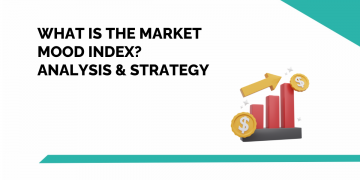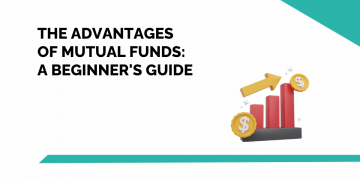Debt funds are mutual funds that invest in fixed-income securities issued by the government and private companies.
Government-issued long-term (GILT) funds, monthly income plans (MIPs), short-term plans (STPs), liquid funds, and fixed maturity plans (FMPs) are some of the types of debt funds. Besides these options, there are various other short-term, medium term and long-term funds that a potential investor can invest in.
For, e.g. a debt mutual fund may comprise a debt component like Treasury bills, Government Securities and any other fixed-income security of a different time horizon.
Table of Contents
Is a debt fund safe or risk-free?
As a debt fund is a fixed-income security, we can say that it is safer than equity because it has less fluctuation. However, they are subject to credit risk, i.e. risk of loss of capital or interest. Investors should look for funds that have a highly rated portfolio.
Who should choose debt funds?
Investors who have a relatively low risk-taking capacity and looking for stable returns should look for funds that match their risk-return horizon.
How to choose a debt fund?
In order to choose the best debt fund scheme, an investor should first determine the time for which he is ready to lock his money. If the investor does not want to lock his money for more than a few days or a few weeks, he should probably go for a liquid scheme, or he can opt for an ultra-short-term scheme if he is ready to lock his money for a few months. A person who wishes to invest for a year or two has the option of short-term funds available to him and long-term funds for those who want to invest for a long term, i.e. 5-6 years or more.
Are dividends from debt funds tax-free?
Prior to 2020, investors’ dividends from stocks or mutual funds were not subject to taxation since the dividend-issuing business had to pay a Dividend Distribution Tax (DDT) before paying dividends to shareholders or investors in mutual funds. The Union Budget 2020 revisions, however, altered the clause by removing the exemption for dividend-issuing corporations from DDT payments and requiring dividend-receiving shareholders to pay taxes in accordance with the established guidelines. The dividends received from mutual fund investments are now regarded as “income from other sources,” and their taxation is determined by the tax slab that is dependent on the investor’s net annual income.
Mutual funds are required by the current regulations to pay the DDT on issued dividends. Mutual fund schemes that prioritize equity and have more than 65% of their assets invested in stocks are subject to 10% DDT, surcharge, and cess, resulting in an effective DDT of 11.648%.
The DDT is 25% on non-equity focused mutual fund schemes plus a cess and surcharge, for a total DDT of 29.12%.
Is short-term investment (say 5-6 months) in a debt fund possible?
There are different types of debt funds that an investor can invest in
- Liquid debt fund
- Ultra short-term debt funds
- Short term debt fund
- Long term debt fund
If an investor wants to invest for a very short period, say 5-6 months, he can go for either a liquid debt fund or a short-term debt fund. Liquid funds are those whose time period of investment is a few days or a few weeks, and ultra short-term debt funds are those whose time period of investment is a few months. Hence, this allows an investor to invest his money for a short period of time.
Is there any difference between debt funds and liquid funds in terms of risk, returns, liquidity, and NAV?
Risk:-
Liquid funds: Since these funds are for a short period of time, hence the interest rate remains the same and hence, credit risk is also low. Thus, these funds have a very low risk.
Debt funds: Since these funds are for a period more than that of liquid funds, prices of the underlying bonds in the portfolio gets affected by the fluctuations in the interest rates. Another risk associated with debt funds is the credit risk. Credit default risk will be high if the credit rating of the fund is low and vice versa. So the investors should carefully verify the credit rating of the fund they are going to invest in.
Returns:-
Liquid funds: The chances of NAV fluctuation is less because these funds invest in short maturity debt securities. Also, these funds do not have Mark to Market risk. Hence, these funds yield stable returns.
Debt funds: The investor should evaluate his risk appetite based on which he can invest taking into account the duration of the debt fund. A fund with higher duration sees higher fluctuation due to specific change in interest rate and vice versa.
Liquidity:-
Liquid funds: Since there is no lock-in period, liquid funds can be redeemed within next business day.
Debt funds: Debt funds can also be redeemed easily as there is no risk at the investor level until a situation like collapsing of Lehman brothers or Greece crisis occurs.
NAV:-
Liquid funds: NAV is calculated for all the days during the year
Debt funds: NAV is calculated only on business days.
This also means that liquid funds give you the benefit of holiday NAV which other debt funds do not give.
Basic Facts You Must Know About Mutual Fund Schemes
What are short term debt funds?
Short term debt funds are those funds whose portfolio securities maturity period is from one year to three years. These funds invest as a combination of short term instruments like commercial paper, certificates of deposits, medium term instruments and long term instruments like corporate debt instruments and government securities.
What are long term debt funds?
Long term debt funds are those funds that invest in long term debt securities. These funds are suitable for investors who want to invest their money for a long period of time and investors should select the fund after matching its risk-return horizon with their own.
What are Debt Oriented Hybrid Funds?
Hybrid mutual funds are those funds that invest money in both equity and debt instruments but where major portion of money is invested in debt and some portion in equity or bank deposit.
Funds with these kind of portfolios hold around 75% to 90% portion in debt and the remaining in equity.
Debt Fund vs. Fixed Deposit
Safety:-
For investors who want a secured type of investment with minimal or no chance of default, fixed deposits are the most preferred type of investment. Unlike bank deposits, debt funds are not fully secured. Returns are based on market conditions and thus investors are affected by both credit risk and interest risk.
Taxation:-
There are two types of taxes charged on the debt fund- short term capital gain tax and long term capital gain tax. An investor who holds his investment in debt fund for less than 3 years falls in the category where short term capital gain tax is applicable and will be charged as per the normal tax slab applicable to him. But, if the investment in debt fund is held for more than 3 years, it will fall under long term capital gain tax and tax rate in this case will be 20% along with indexation plus 3% cess. So that totals to 20.9%
Liquidity:-
Talking about liquidity, there is not much difference between the debt fund and the fixed deposits because both the investment options can be liquidated within the same period. However, in case of fixed deposits, if the money is withdrawn before the maturity period, some amount of penalty can be imposed. Also, in case of debt funds there is an exit load that is usually paid on redemption.
Returns:-
In case of debt funds, the returns are generally higher than the bank deposits if the interest rate remains stable. This is because they bear both the credit risk and interest rate risk, and higher the risk, higher the returns.
Debt Mutual Funds vs. Equity Mutual Funds
Nature of investments:-
Debt mutual funds are those funds that invest in a mix of debt with fixed income and other debt securities but major portion of the investment is in fixed income debt securities.
Whereas equity mutual funds are those funds that invest major portion of investment in equity or stock market.
Taxability:-
| Type of fund | Period of holding | Tax rate |
| Equity mutual fund | Less than 1 year, i.e. short term | 15% |
| More than 1 year, i.e. long term | 10% over and above 1 lakh of capital gain | |
| Debt mutual fund | Less than 3 years, i.e. Short term | As per slab rates |
| More than 3 Years, i.e. long term | 20%+ cess |
Risk:-
Equity mutual funds carry much higher risk than debt funds. Debt funds are funds that receive a fixed income however equity funds do not receive a fixed income instead they are subjected to an inherent risk which is much higher than the risk element in debt funds.
Returns:-
As the saying goes, higher risk, higher returns. Since equity mutual funds are riskier than debt funds, they also receive higher returns than the debt mutual funds. They may receive negative returns also sometimes.
Recurring Deposits vs. Debt Funds
For investors who are looking for secured returns, they should look for an investment in recurring deposits as they give fixed assured returns. For investors who can bear a little risk can go for short term debt schemes as the returns are higher than the recurring deposits.
Arbitrage Funds vs. Debt Funds
Arbitrage funds are a type of mutual fund that bridges the difference between the price in the cash market and the derivatives market in order to generate returns. Basically what happens is simultaneous buying and selling of the same security in two different markets, for example, buying in the cash market and selling futures of the same stock in the derivatives market.
If we talk about the 1-year returns, the returns on arbitrage funds are tax-free. Liquid and short-term debt funds, on the other hand attract a tax rate of around 36% if the investor tends to fall in the highest tax bracket.
Check out the performance in the table below:
| Funds | 1-year Return (%) as on: | ||||||
| 30-Sep-11 | 30-Sep-12 | 30-Sep-13 | 30-Sep-14 | 30-Sep-15 | 30-Sep-16 | 30-Sep-17 | |
| Average Return of Arbitrage Funds | 8.20 | 9.31 | 8.70 | 8.77 | 7.99 | 6.40 | 5.97 |
| Crisil Liquid Fund Index (Post-tax) | 5.01 | 5.59 | 5.51 | 6.11 | 5.52 | 4.95 | 4.32 |
| Crisil Short Term Bond Fund Index (Post-tax) | 4.39 | 5.93 | 4.98 | 6.52 | 6.38 | 6.01 | 4.90 |
| Crisil Liquid Fund Index (Pre-tax) | 7.77 | 8.67 | 8.54 | 9.49 | 8.56 | 7.67 | 6.70 |
| Crisil Short Term Bond Fund Index (Pre-tax) | 6.81 | 9.21 | 7.73 | 10.12 | 9.90 | 9.32 | 7.60 |
Data as on September 30, 2017. Returns are absolute. Tax @35.54% considered.
(Source: ACE MF, PersonalFN Research)
(Source: personalfn.com)
Arbitrage Funds are categorized as equity oriented schemes; hence, gains on units held for over a year are subjected to equity mutual fund taxation.
Thus, arbitrage schemes provide low-risk and short-term investors a huge tax advantage.
Debt Funds vs. Gilt Funds
Gilt funds invest in securities issued by the central and state government with maturity of medium term to long term.
Since these funds are issued by the Government, these funds have very less probability of default whereas debt funds are riskier than gilt funds.
The value of gilt funds change depending on the interest rates and various other economic conditions.
Unlike debt funds, interest rate risk in gilt funds is highly dependent on the maturity profile. Higher the time for maturity, higher is the interest rate risk.
Debt Funds vs. Balanced Funds
Balanced Funds are those funds that generate high returns with moderate risk profile. This type of fund is best suitable for investors who want high returns with medium risk level. These are a type of hybrid funds with major part invested in equities and rest in some fixed income securities whereas in case of debt funds, it is vice versa.
Long-term debt mutual fund (MF) schemes had a great run for three years. The top performing long-term debt schemes have given annual returns of 10% to 11.5









The next time I read a blog, I hope that it doesnt disappoint me as much as this one. I mean, I know it was my choice to read, but I actually thought youd have something interesting to say. All I hear is a bunch of whining about something that you could fix if you werent too busy looking for attention.